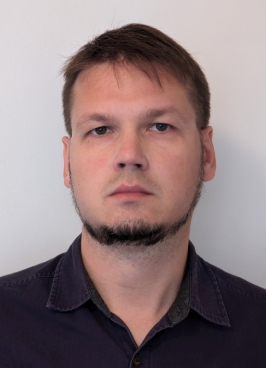Research Spotlight on Mart Kuldkepp

Mart Kuldkepp is a Professor of Estonian and Nordic History at University College London (UCL) and the John S. Saden Visiting Professor in Baltic Studies at Yale this semester. In this brief interview, Professor Kuldkepp discusses his ongoing book projects, research interests in Scandinavian and Baltic history and politics, and his experience at Yale thus far.
If you are interested in Professor Kuldkepp’s research, please join his talk titled “The Baltic-Scandinavian-American Axis: Estonian Refugees of the 1905 Russian Revolution in the West” on November 19th at 4 PM, in Room 203, Luce Hall.
What was your pathway to visiting Yale?
I was invited to take up this visiting position by Bradley Woodworth, the program manager of the Baltic Studies Program at Yale, and Asia Neupane, the former program director of the European Studies Program. I most likely would never have had this opportunity if it wasn’t for them. I had in fact briefly visited twice before: first in 2014 for the joint Baltic Studies and Scandinavian Studies conference, and then again in June of this year, for a new Baltic Studies conference. But it was of course Brad Woodworth who was behind the organizing of these conferences as well. So, I really owe my thanks to him.
What will you be working on when you are at Yale?
I’ve been here since early August, and as usual, I’ve been working on a variety of slightly different things. I have overseen the editing and copyediting process of the manuscript of my next book. It is entitled The Shortest History of Scandinavia and will be published in April 2025. I have also done the same with my translation from Old Icelandic into Estonian of Örvar-Odds saga, a 13th-century Norse literary work about the life and deeds of the eponymous Norwegian Viking Örvar-Oddr. This book should also come out fairly soon. Beyond that, I have been to Archives II in College Park, Maryland, to research the records of the US Military Intelligence during the First World War, with a focus on the involvement of Estonians in transnational political entanglements at the time. And I’m currently working on an article about plan to arm the Estonian workers in 1905 with weapons and ammunition smuggled in from Western Europe. Of course, I’ve also been teaching a postgraduate course on Baltic independence once a week, and publishing my bimonthly opinion pieces on Russia’s war against Ukraine in the Estonian daily newspaper Postimees.
What has your experience been like teaching at Yale?
It’s been a great experience. I find my students very engaged, thoughtful and hard-working. We have had some great discussions in class. I’m generally prone to talking too much myself, so I always appreciate it when students keep me in check. And teaching is the best way to learn, so I’m always learning a lot. This is very important; especially as a person is getting older and more set in their ways and ideas.
How will you be working with Yale researchers?
I’m trying to be present and contributing to the discussions when I can, especially on Baltic and Scandinavian topics that I know more about. On 19 November, I have an open talk coming up. It’s about the so-called Northern Underground: a clandestine communications route in the 19th and early 20th centuries connecting the borderlands of the former Russian Empire via Scandinavia to centers of left-wing political activism in Western Europe and the United States. In February next year I’ll be returning to participate in a conference about the Baltic German minority in the Baltic region. My presentation then will be about a Baltic German plan to orchestrate a coup ‘d’état in Latvia with the help of Swedish volunteers in early 1919, providing a good case study of the unlikely schemes that the former Baltic elites devised in hope to remain relevant in a post-World War I world.
What are you most looking forward to doing or visiting when at Yale?
I was looking forward to experiencing a different academic setting and different pace after being Head of Department for three years at my home university (UCL in London). I can say I have definitely had that; it’s been a wonderful opportunity to focus on teaching and research. The libraries here are very well-stocked and generous, and the overall academic atmosphere has enriched me in many ways. New Haven is also well-connected for travel: I can easily do archival research in Washington DC area, visit a conference in Boston, or go to New York City to take a real-life look at historical landmarks that speak to my interest in histories of transnational immigration and political radicalism. I hope Yale’s experience of hosting me will end up being at least half as good as mine of enjoying its hospitality.
Yale and UCL Collaborative
The Yale UCL (University College London) Collaborative is a transatlantic research partnership between two world-renowned institutions. The Collaborative launched in 2009 with the initial aim of expanding research and clinical capacity in cardiovascular medicine and has since expanded to numerous other fields. Thanks to UCL and Yale’s close relationship, exchange and research collaboration opportunities are available across many parts of both institutions.
The UCL Exchange Program also allows doctoral students from Yale’s Graduate School of Arts and Sciences to spend up to one year studying at UCL’s Doctoral school or conducting research under the supervision of a UCL faculty member. The program provides opportunities to secure joint funding for shared initiatives, efficiently utilize the resources of both institutions, and experience a transatlantic cultural exchange.